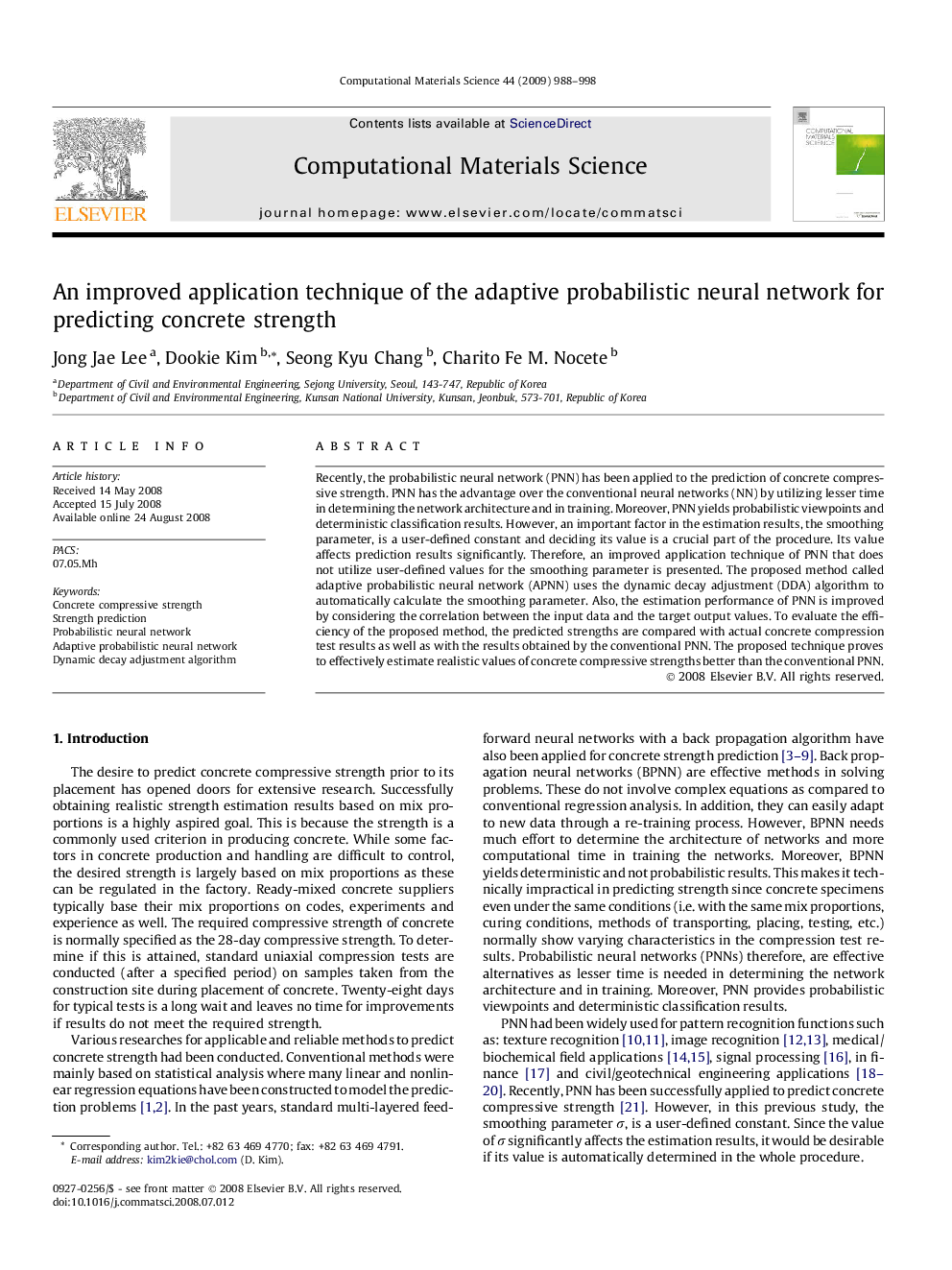| Article ID | Journal | Published Year | Pages | File Type |
|---|---|---|---|---|
| 1563769 | Computational Materials Science | 2009 | 11 Pages |
Recently, the probabilistic neural network (PNN) has been applied to the prediction of concrete compressive strength. PNN has the advantage over the conventional neural networks (NN) by utilizing lesser time in determining the network architecture and in training. Moreover, PNN yields probabilistic viewpoints and deterministic classification results. However, an important factor in the estimation results, the smoothing parameter, is a user-defined constant and deciding its value is a crucial part of the procedure. Its value affects prediction results significantly. Therefore, an improved application technique of PNN that does not utilize user-defined values for the smoothing parameter is presented. The proposed method called adaptive probabilistic neural network (APNN) uses the dynamic decay adjustment (DDA) algorithm to automatically calculate the smoothing parameter. Also, the estimation performance of PNN is improved by considering the correlation between the input data and the target output values. To evaluate the efficiency of the proposed method, the predicted strengths are compared with actual concrete compression test results as well as with the results obtained by the conventional PNN. The proposed technique proves to effectively estimate realistic values of concrete compressive strengths better than the conventional PNN.
